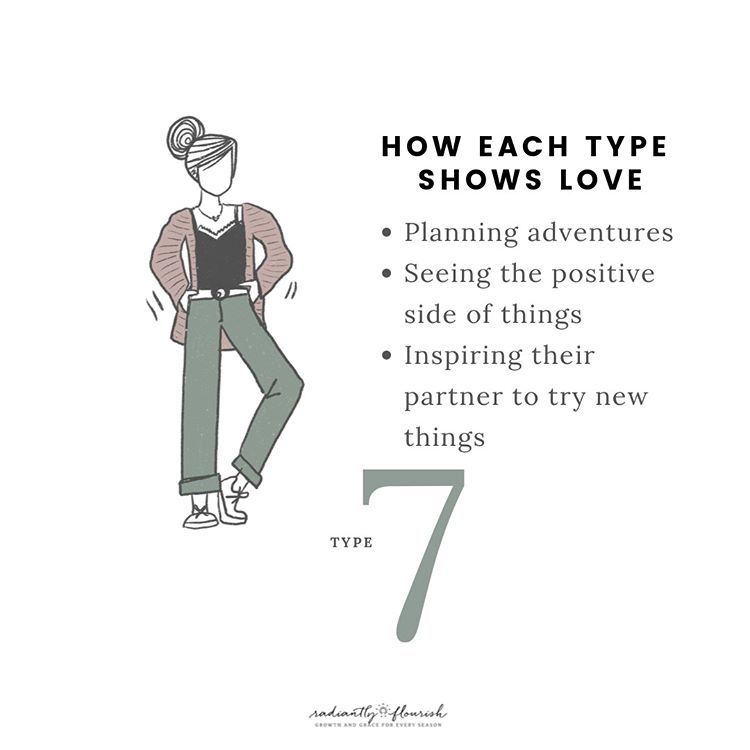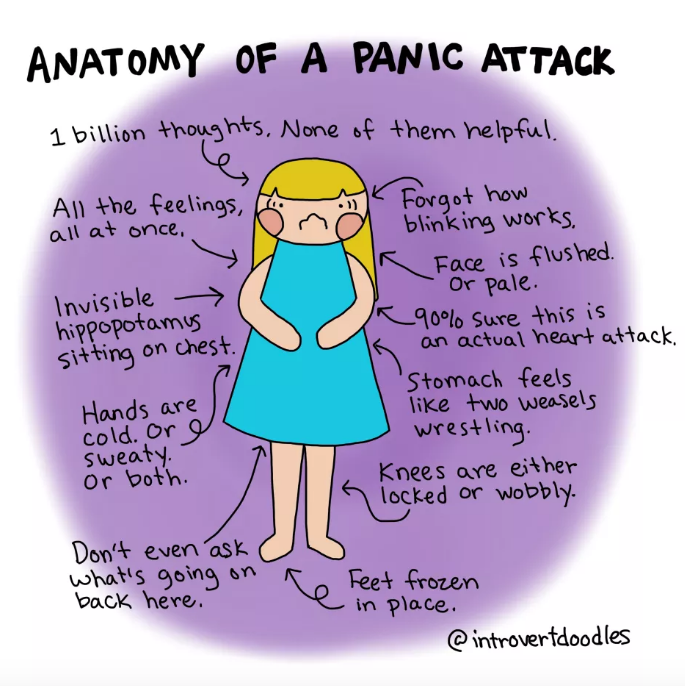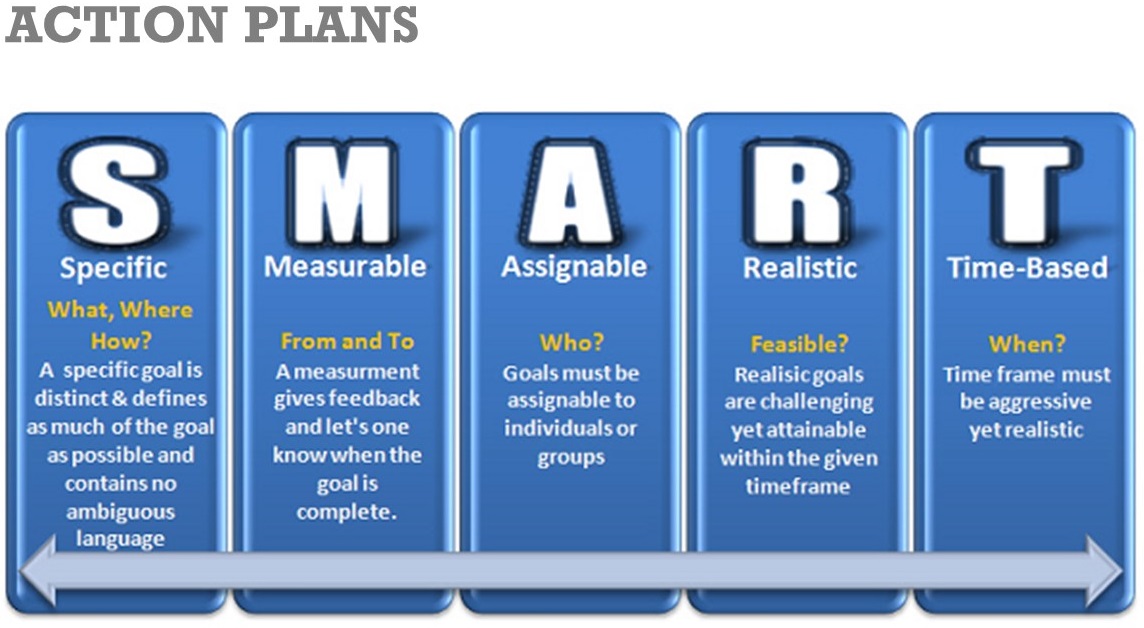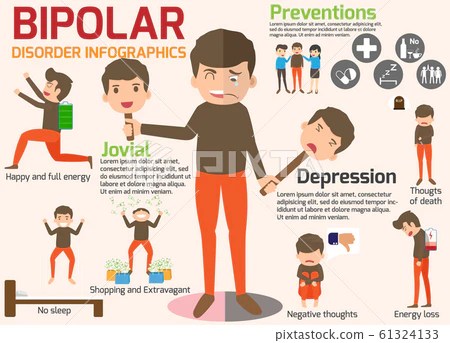Introverted enneagram 7
Introverts, Extraverts, and the Enneagram
“He’s much too extraverted to be a Type 5 Investigator.”
"She’s way too introverted to be a Type 7 Enthusiast.”
As someone who’s conducted hundreds of Enneagram typing interviews, I cringe when I hear these statements because these generalizations highlight a basic misunderstanding of the Enneagram – the mistaken belief that someone’s Enneagram type can be uncovered based solely by observing their behavior.
I’ve interviewed shy, reserved Type 7s who vividly described their internal world as relentlessly focused on a bright future filled with options. And I’ve met engaging, party-animal Type 5s who described down to the minute when they were planning to make their exit from the wild party they had carefully agreed to attend. Behavior is useful and interesting, but it isn’t always a direct line to motivation. And motivation, including the underlying thought patterns around this motivation, is what lies at the center of the Enneagram.
Instead of focusing on behavior, we need to uncover thought patterns to learn someone’s Enneagram type.
With that as the backdrop, it is easy to see how people get confused. Let’s explore more closely the relationship between Introverts, Extraverts, and the Enneagram.
Introverts
In general terms, an Introvert is someone who gains energy from being alone. Introverts orient their focus inward and are often described as reserved, introspective, and withdrawn. They can become drained when they are with other people for long periods of time, and they may have fewer friends and acquaintances than their Extraverted counterparts. Introverted people are typically deliberate in their actions and focused in their thinking. They think before they act.
Extraverts
In contrast, Extraverts gain energy from being with other people. They orient their focus outward and gain energy through interactions with others. They become drained if they spend too much time alone. They often have a wide circle of friends and acquaintances and are generally more impulsive than their introverted counterparts. They may act quickly and consider the consequences later.
They often have a wide circle of friends and acquaintances and are generally more impulsive than their introverted counterparts. They may act quickly and consider the consequences later.
Introversion and Extraversion are two opposite measures on the Myers & Briggs scale, but in the Enneagram, the relationship is less clear. Most people familiar with the Enneagram will say that either Introversion or Extraversion can exist in all nine of the types, but Type 5s are viewed as the classic Introvert and Type 7s are seen as the classic Extravert. Is this true? Let’s dig a little deeper.
Behavior versus Motivation and Thought Patterns
When you initially study the Enneagram, you spend a lot of time reading the type descriptions. For example, you might read that Type Five Investigators are defined by their desire to conserve energy and avoid being drained by engagement with the outside world. They are described as withdrawn, reserved, quiet, introspective, and deliberate in their actions.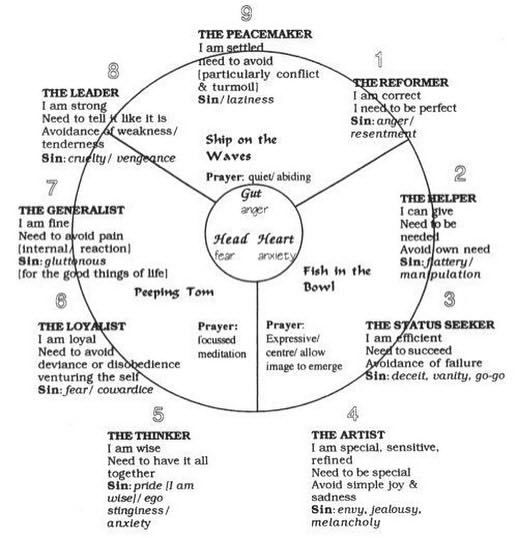 They sound like classic Introverts.
They sound like classic Introverts.
You’ll read that Type Seven Enthusiasts are defined by their desire to experience everything life has to offer while avoiding pain and boredom. They are described as adventure-seeking, high-energy, indiscriminate, and outgoing. They sound like classic Extraverts.
But at the core of the Enneagram is thought patterns. Behavior radiates out from thought patterns, but the two aren’t interchangeable. The Enneagram type descriptions are only useful to uncover the foundational thought pattern and related motivation. This is where the confusion lies and why generalizations can be dangerous.
An Extraverted Type 5?
The Type 5 thought pattern is focused on scarcity and concerns about being overwhelmed by the demands of others. This thought pattern means Type 5s are constantly measuring what is being asked of them in a situation and determining how overwhelming that engagement may become. This can relate to time, energy and other resources.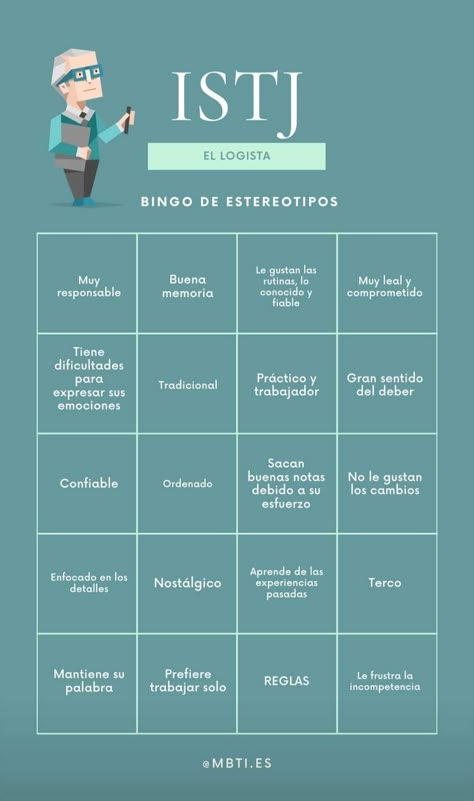 An easy solution for most Type 5s is to stay withdrawn to avoid outside demands that might become overwhelming.
An easy solution for most Type 5s is to stay withdrawn to avoid outside demands that might become overwhelming.
Another approach can be to engage fully but in an extremely boundary-oriented way. A Type 5 might agree to lead a mountain climbing group on a strenuous day-long hike. But they will know it will start at 9:00 am and end at 6:00 pm. They will have carefully mapped out the time requirements, be mindful of all physical details, and have clear expectations about the end time of the event. Only the Type 5 would know about these boundaries, so the engagement might look casual and even fully “extraverted.” But the thought pattern remains Type 5, with an eye on constraints and an awareness that crossing the self-defined boundary will trigger anxiety and discomfort.
The Type 5 might look like an extraverted team leader, but only within these carefully determined boundaries. It appears to be extraverted behavior, but at the core, it is more nuanced. It’s calculated extraversion, which isn’t true extraversion.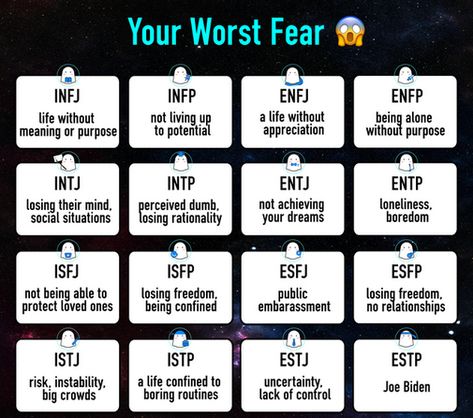
An Introverted Type 7?
The Type 7 thought pattern is future-oriented with a focus on positive possibilities. Type 7s feel that happiness is right around the corner, they have to go get it themselves, and it is probably something they haven’t done before. With this as a backdrop, it is easy to see how this personality can seem very extraverted and social, with a thirst for adventure.
But I’ve met Type 7s who felt like their positive future was based in the new book they had purchased. They were eager to sit in solitude on a beach, read their book and avoid group activities because they didn’t see those group activities as being as pleasurable as reading alone. The behavior might look reserved and withdrawn but the thought patterns were 100% Type 7 and highlight the fact that Introverted Type 7s do exist.
In Summary
Introverts and Extraverts exist independent of Enneagram type. People often try to find trends between the Myers-Briggs personality system and the Enneagram but the two systems actually measure very different things. Myers and Briggs seeks to provide a system for human behavior. It helps us understand our inherent strengths and weaknesses and offers us a clearer view of others.
Myers and Briggs seeks to provide a system for human behavior. It helps us understand our inherent strengths and weaknesses and offers us a clearer view of others.
The Enneagram illuminates core motivation and foundational thought patterns. It focuses on base fears, core desires, and inherent reality distortions based on a habit of attention. It offers a very granular view into someone’s thinking and can be more predictive of behavior. The two systems actually work very well to complement each other by measuring different, but useful factors in human personality. And one of the clearest examples of this difference are the traits of introversion and extraversion.
Learn more about the 16-type system. Learn more about the Enneagram.
Can Type 7 Be An Introvert? (A Guide To Enneagram Type 7)
In his brief guide, we will discuss the question “Can type 7 be an introvert?”, as well as other related questions subjects like Enneagram Test, Enneagram types, and other introverted Enneagram types in particular.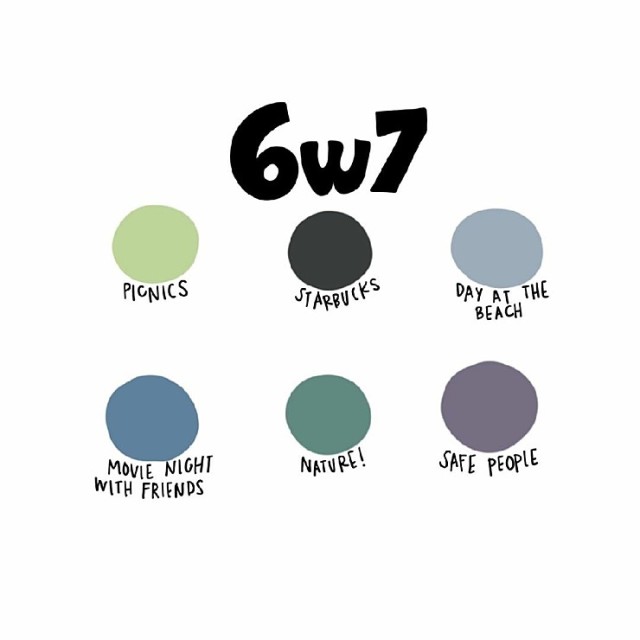
Can Type 7 be an Introvert?
No, the type 7 enneagram generally cannot be an introvert, but at the same time, there exist people who consider all the traits of Type 7 enneagram to be applicable to them, without the tendency to be an extrovert, which may be due to several other factors in their personality, like their MBTI personality type, their environment or even a possible enneagram wing involving the type 7 enneagram type.
Personality study is a complicated field, due to the obviously complicated nature of people, and usually, personality theorists need to keep that in mind when they pore over research to come up with ways to describe a person.
Typology theories of personality like enneagramm tend to describe distinct types with many characteristics for each type, and the person is said to fit any of the types, which may be measured by understanding their traits or taking a personality test.
Trait theories, on the other hand, mention specific traits that a person may have and how that might affect their thoughts, emotions, and behavior, an example of which is the Big Five personality type.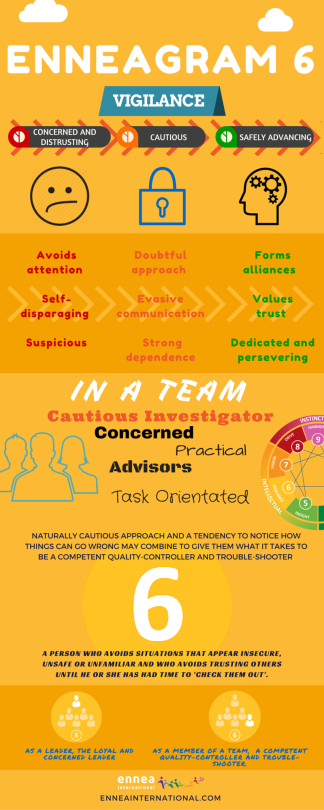
Due to the fact that type theories are more limiting and distinctive, it takes away the possibility of someone being more than just a type, which means that many type 7 people, for instance, may not know what to do if they are introverts but they identify with all the other traits mentioned under the Enneagram Type 7, which leads to questions like “Can Type 7 be an Introvert?”.
Enneagram is slightly different from other Type theories though, as there is a provision in the enneagram theory that one may be an amalgam of their adjacent types and their main type, and this is done in the manner of a wing.
A wing in enneagram is essentially a crossover with the adjacent personality types which allows for the person to associate with some personality types on either side.
In the case of type 7, then, it is possible that if someone had the traits of type 8 as well, who may sometimes be introverted, they may say that they have a 7 with wing 8 personality rather than purely a type 7 personality.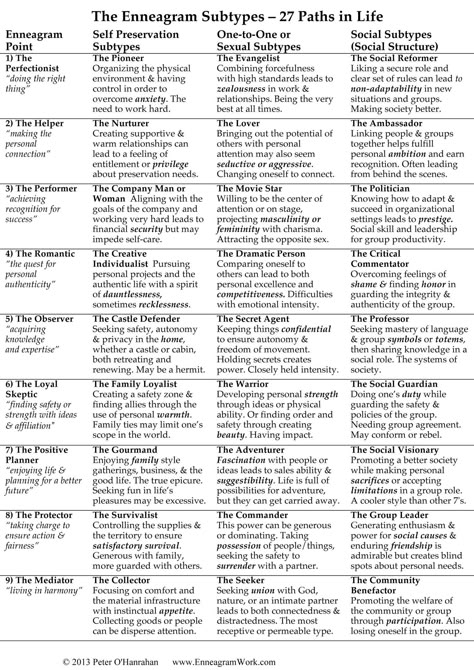
In addition to the wing, a crossover between MBTI personality types and enneagram type 7 may also be considered, as the cognitive functions outlined in the MBTI personality theory tend to be slightly more open in terms of how they work, and the definition of an introvert in that theory is also slightly wider than it is in the enneagram personality.
Lastly, it is also important to remember that type theory cannot encompass all the traits someone has, because it is simply not possible to include every nuance of someone’s personality, and you may always feel that there is some trait in your that doesn’t seem to fit in with the type you most identify with, which is okay, and you may still see what you identify with the most and use that like your type, whether it is Type 7 enneagram or any other.
Type 7 Enneagram
The type 7 enneagram is a personality type in the enneagram theory of personality and they are known as the Adventurer, with traits like being novelty-seeking, excitable, and optimistic.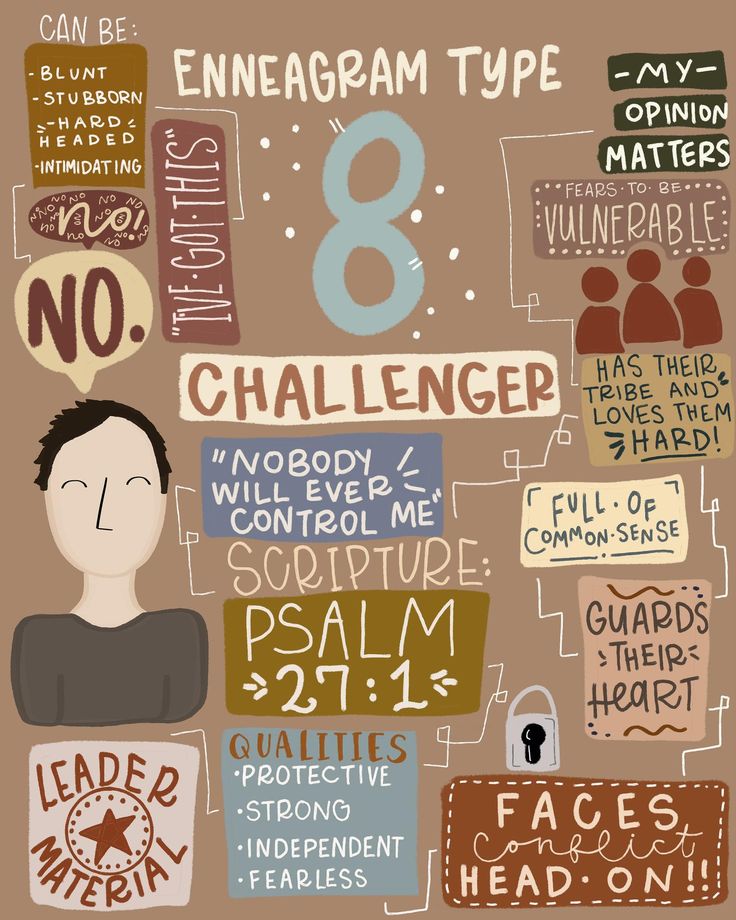
When one understands the type 7 enneagram properly it may be easier to answer the question “Can type 7 be an introvert”, which usually may be no, given that this personality type is characterized by their willingness and openness to their environment.
The Type 7, typically, is usually playful, high-spirited, and practical, but they may also be somewhat scattered and undisciplined, and they may have a tendency to over-reach for things that overestimate their abilities.
The Type 7 enneagram personality is known for their need to seek adventure and newness and they may sometimes get too focused on doing this and may ignore the other more important things in their lives.
Because the type 7 enneagram has such plans for exploring and newness, and have a tendency to keep moving constantly, they may be impatient and impulsive, and their impulsiveness can lead to risk-taking behavior in those that are prone to that sort of thing, or if they are going through a rough time.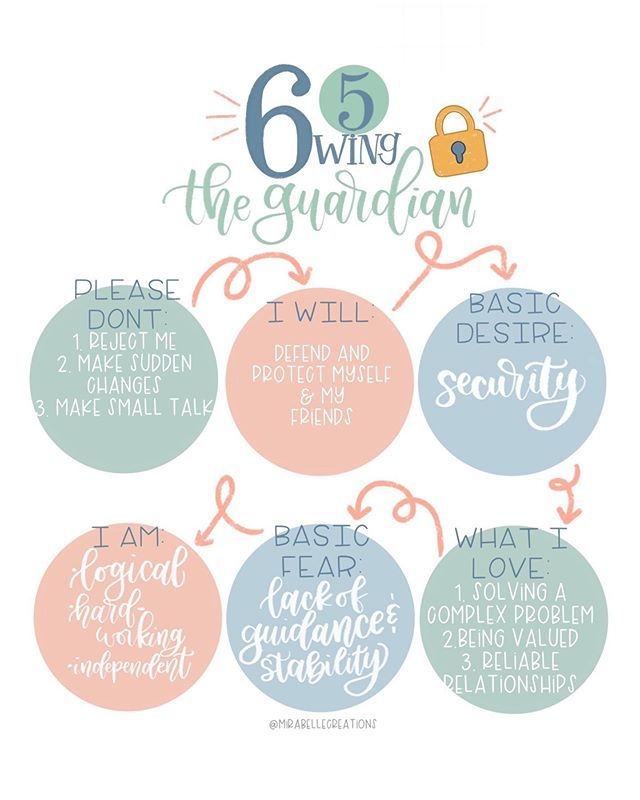
Their healthy versions may be very focused and energized about their goals and they may be deeply appreciative of their environment, but the unhealthy version of the Type 7 enneagram perosnality may be all over the place, constantly rushing off after newer things, or easily distracted and inattentive.
Before we further understand the Type 7 Enneagram personality let us take a look at their basic desire and basic fear.
Basic Desire
The basic desire of the type 7 enneagram is to be satisfied and feel content, and these people mostly try to go in directions that fulfills this basic desire they have.
The Type 7 enneagram personality may be considered a little hedonistic, and they may often have trouble delaying gratification, as they constantly seek to have their needs fulfilled.
This basic desire may be the reason why the type 7 tends to be on the go all the time, and why in their unhealthy versions they tend to take so many risks and try to do so much so quickly.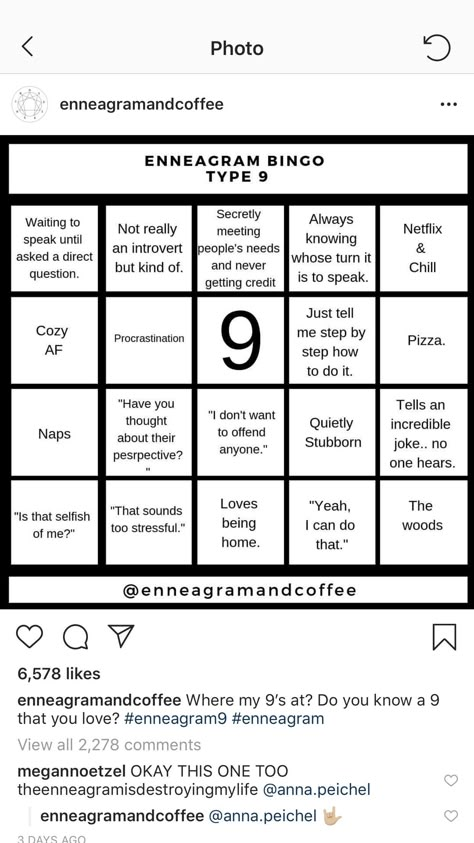
Basic Fear
The Basic fear of any personality is the stimulus they have on the inside that drives them to do whatever they can to avoid it, and in the case of type 7 personality, the basic fear is that of stagnation or being stuck.
The type 7 personality in the enneagram fears most of all the possibility of deprivation and being in pain, and being stagnant or stuck would do that to them.
They also crave lavishness and goodness in everything, so the underlying process is the extreme fear of being uncomfortable or just generally not having enough and going through adversities.
The type 7 enneagram is also a part of the thinking center of the enneagram, but they may not seem like that on the surface, as the thinking and analytical part of them are rather hidden.
An Enneagram Type 7 describes her process though, and reading about it one may realize that they are in fact, run majorly by their thinking processes:
“I am definitely a list person. It’s not really for memory since I have a great memory.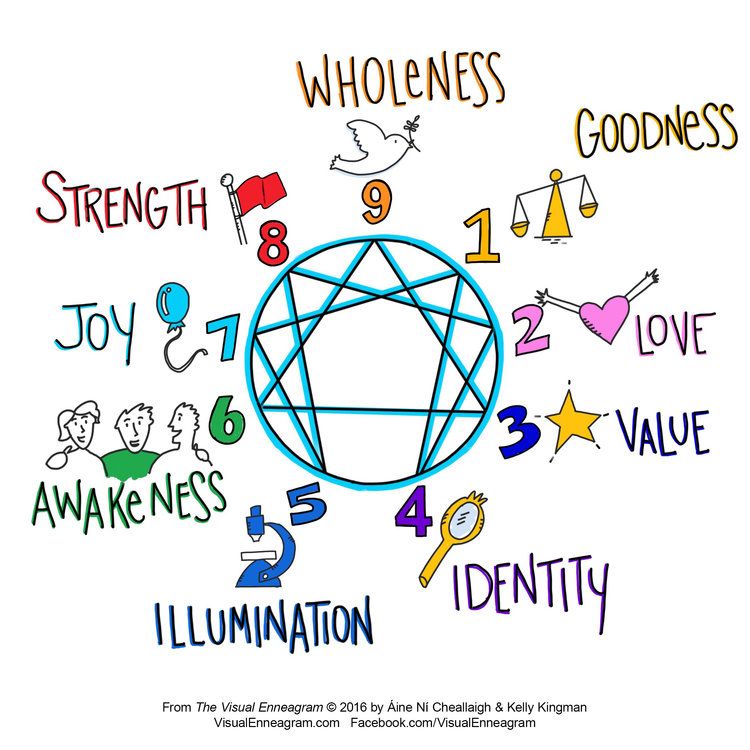 It’s more for down-loading information so that my mind won’t spin on it. For example, I was at a concert where the tickets were hard to get and very expensive. I couldn’t sit through it. My mind was torturing me with the things I needed to do. Finally, I had to get up and leave. This was very upsetting to the person I went with and I missed a good show.”
It’s more for down-loading information so that my mind won’t spin on it. For example, I was at a concert where the tickets were hard to get and very expensive. I couldn’t sit through it. My mind was torturing me with the things I needed to do. Finally, I had to get up and leave. This was very upsetting to the person I went with and I missed a good show.”
Introverted Type 7 Enneagram
Now that we have discussed what the type 7 enneagram is and how much possibility it is for the type 7 to be introverted, let us discuss some possible situations where the type 7 enneagram personality may also be introverted.
Before we discuss introversion in terms of Type 7 enneagram, we need to explore what it means, because it has come to mean much more than “not being a people’s person”, and it has come to encompass the person’s thinking processes, their preference for the inner world and their general orientation to the inner or outer world in terms of what they need in terms of their optimum performance.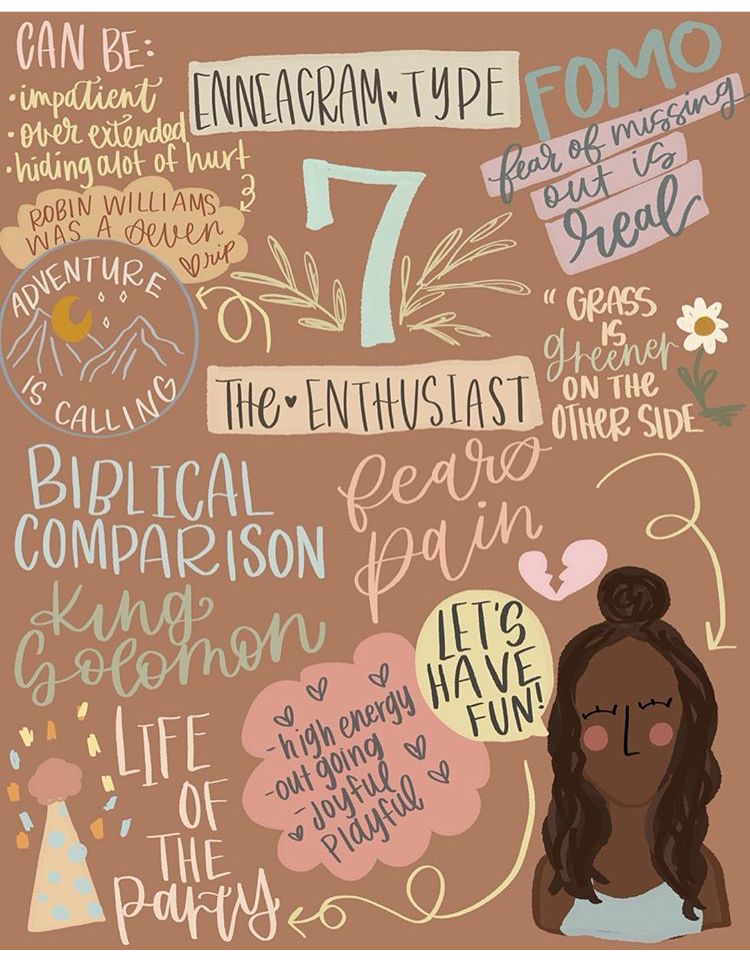
Jung describes introversion as the following:
“Everyone whose attitude is introverted thinks feels, and acts in a way that clearly demonstrates that the subject is the prime motivating factor and that the object is of secondary importance.”
“Always he has to prove that everything he does rests on his own decisions and convictions, and never because he is influenced by anyone, or desires to please or conciliate some person or opinion.”
Jung also says that an introvert is more influenced by their inner world, but this does not necessarily mean that the person will not want to see people or interact with people at all, and going by his definition, one may easily consider that a type 7 may well be someone who likes themselves more and want to be with themselves far more than others.
There are also Myers Briggs personality types that are technically introverted but still like to go out and experience things in their outer world, like the ISTP or the INFJs, who are types of people that are technically ruled by an introverted dominant function but still like to mingle with their environment a fair bit.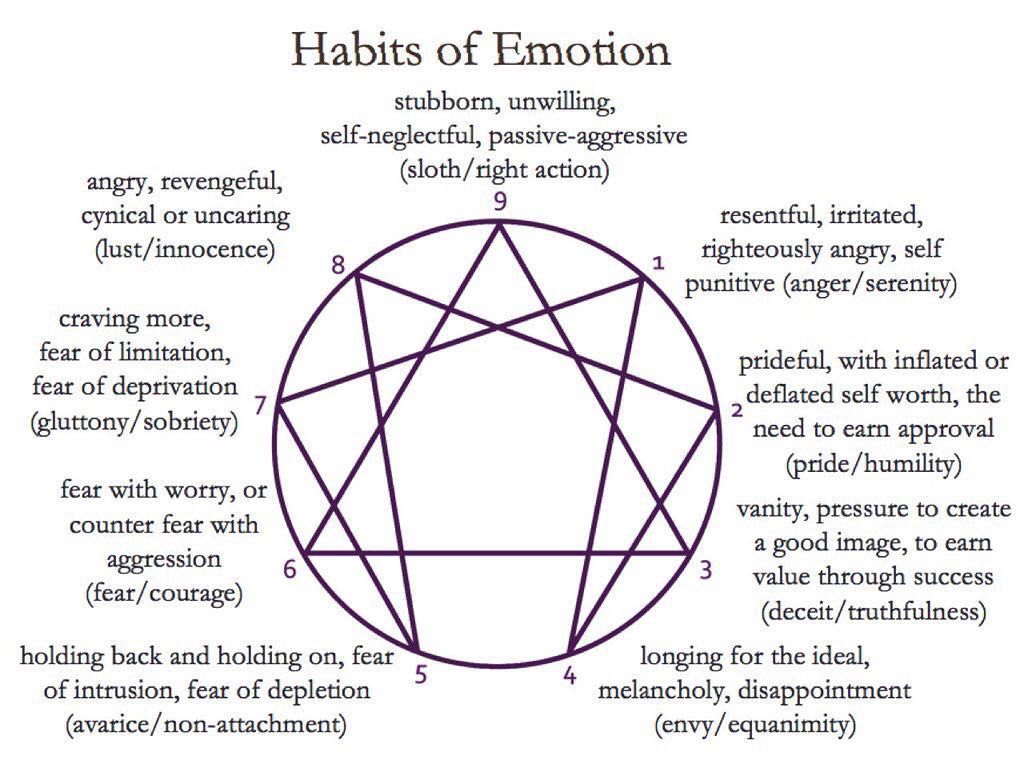
Introverted Enneagram Types
Some commonly recognized introverted enneagram types are Type 4, who is called the Individualist, Type 5, called the Investigator, and Type 6, known as the Loyalist.
In addition to these predominantly introverted enneagram types, there are also some slightly introverted types who may not always be introverted but they may be included in the type of outgoing introverted category as some MBTI personality types are, and these types may commonly be Type 1, the Reformer or Idealist, and Type 9, the Peacemaker.
Type 8 the challenger may sometimes act in an introverted way, but their orientation to the external world may be more dependent on their emotions rather than their general tendency.
Enneagram Definition
The Enneagram may be defined as a theory of personality that makes distinctions between types of people and is based on the spiritual practice of enneagrams and connections given by George Gurdjieff.
Enneagram is a circle with 9 equidistant points on it and it has lines going through it that connect all the points with each other, and in doing so they make parallels or crossovers between the points.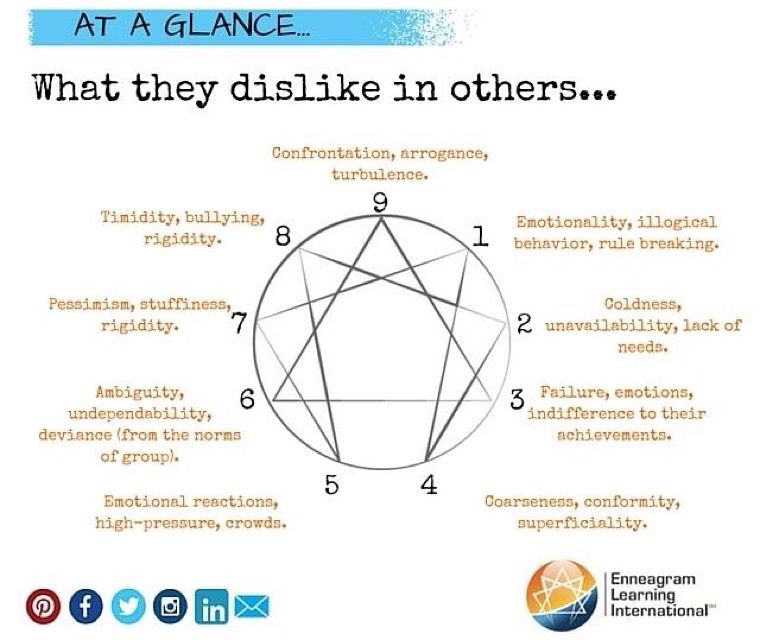
Enneagram Types
Here are all the names and basic traits of the 9 Enneagram types:
- Type 1: Idealist: Reformer, logical, moral, rigid.
- Type 2: Caregiver: affectionate, outgoing, caring, loving, people-oriented.
- Type 3: Achiever: driven, focused, ambitious, goal-oriented, optimistic, extroverted.
- Type 4: Individualist: Romantic, introverted, creative, thoughtful.
- Type 5: Investigator: Skeptic, curious, investigative, knowledgeable, open-minded
- Type 6: Loyalist: Loyal, friendly, dependable, keen, engaging, committed
- Type 7: Adventurer: Funny, outgoing, adventures, enthusiastic, novelty-seeking
- Type 8: Challenger: Intimidating, focused, strong-willed, opposing, rigid
- Type 9: Peacemaker: Calm, relaxed, conflict-avoiding, peaceful, friendly.
Conclusion
In his brief guide, we discussed the question “Can type 7 be an introvert?”, as well as other related questions subjects like Enneagram Test, Enneagram types, and other introverted Enneagram types in particular.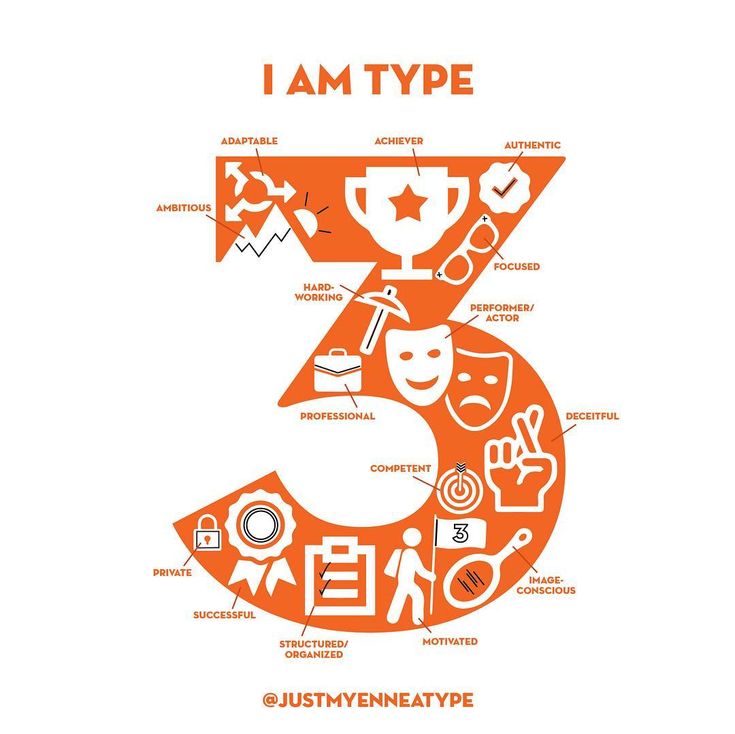 Please feel free to reach out to us with any questions or comments you may have.
Please feel free to reach out to us with any questions or comments you may have.
Frequently Asked Questions (FAQs): Can Type 7 be an Introvert?
Which Enneagram types are introverts?
Enneagram types that are introverted are Type 4 the Individualist, Type 5 the Investigator, and Type 6, the loyalist.
Type 1, the Idealist, and type 9, the Peacemaker, may also be somewhat introverted from time to time.
What are the 4 types of introverts?
The four types of introverts are: social, thinking, anxious, and restrained.
When describing someone as an introvert, most people use the sense of being a social introvert, which means an introvert that does not like hanging out with people much or may not be too outgoing, but there can be other types as well, and this may make a huge difference in the personality.
What is a Type 7 personality?
Type 7 personality is known as adventurous and they tend to be enthusiastic, extroverted and people-oriented, and optimistic.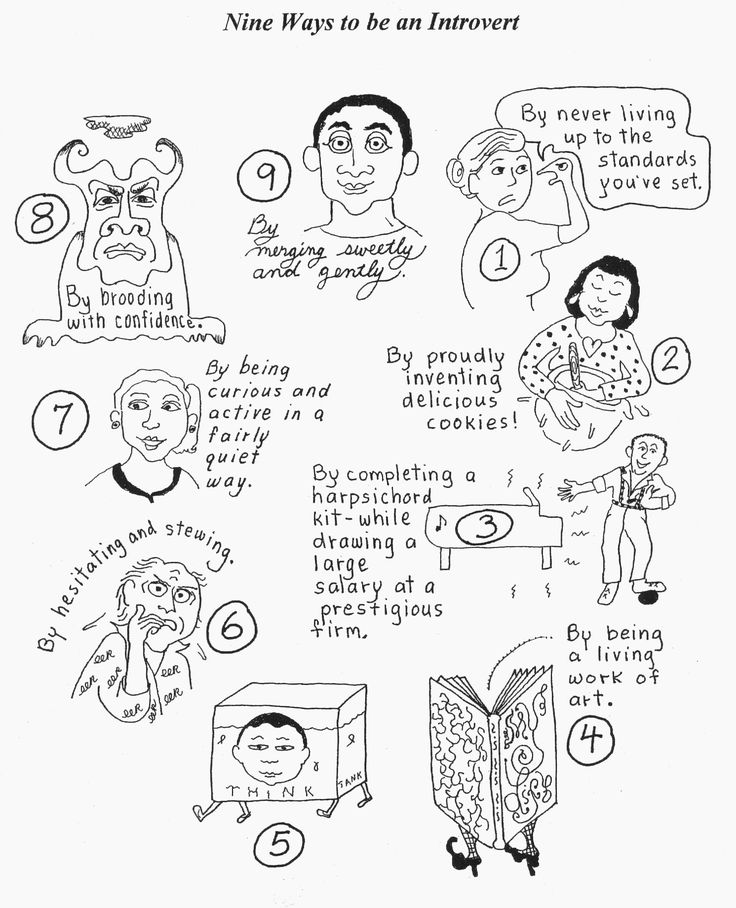
The type 7 personality is a part of the enneagram theory of personality and they also tend to be rather versatile and spontaneous.
Type 7 may show behavior like playfulness and they may often engage in risky or impulsive behavior as well.
Citations
Here Are The Most Common Enneagram Types For Each Myers-Briggs Personality Type
https://www.typologycentral.com/wiki/index.php/Enneagram_and_MBTI_Correlation#:~:text=Enneagram%207%20%2D%20Enneagram%207%20correlates,one%20of%20those%20four%20types.
https://www.enneagraminstitute.com/type-7
https://www.crystalknows.com/personalities
Your feedback helps us improve the quality of these articles.
Enneagram » Enneagram Type 7: Enthusiast
Detailed description of Enneagram Type 7
Author of the article: Irina Karopa
other people to joint events or projects. He has many different plans for how to have fun and interesting time. This is a frequenter of all kinds of parties and holidays, a lover of adventure and surprises, he has many different acquaintances and friends. For its ability to always enjoy life, the seventh type of the Enneagram is called Epicurean. You can also find the names Optimist or Enthusiast .
He has many different plans for how to have fun and interesting time. This is a frequenter of all kinds of parties and holidays, a lover of adventure and surprises, he has many different acquaintances and friends. For its ability to always enjoy life, the seventh type of the Enneagram is called Epicurean. You can also find the names Optimist or Enthusiast .
Sevens talk a lot and quickly, their manner of behavior and communication is energetic, cheerful, lively. In a conversation, they often jump from one topic to another, smile a lot, try to entertain the interlocutor with funny or funny stories. In their speech, phrases like: “Let's do it ...! What if we try...? Why not go…?” Thus, this type of meta-message is: “Life is beautiful and exciting! It has a lot of interesting, new, unusual things. I am happy and want to share my joy with you!”
Attitude to life
Sevens are attracted by everything new, unusual, non-standard.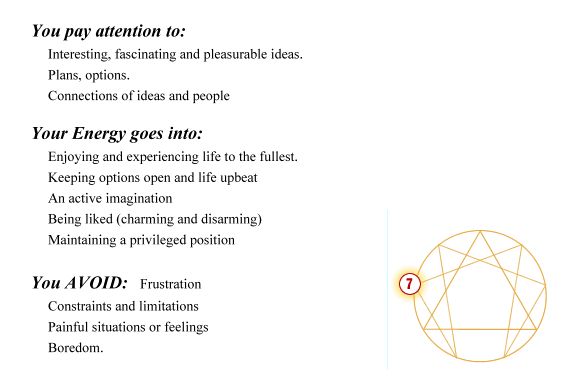 This is an optimistic, cheerful, creative and enthusiastic Enneagram type. In any business or occupation, they, first of all, evaluate how interesting it is for them. They are easily carried away by new acquaintances, ideas or projects. These are real experts in starting any new business. However, they often lack the focus and patience to complete what they started. Barely having time to start a new project, Sevens already see new, more exciting opportunities, and rush to them.
This is an optimistic, cheerful, creative and enthusiastic Enneagram type. In any business or occupation, they, first of all, evaluate how interesting it is for them. They are easily carried away by new acquaintances, ideas or projects. These are real experts in starting any new business. However, they often lack the focus and patience to complete what they started. Barely having time to start a new project, Sevens already see new, more exciting opportunities, and rush to them.
Pleasure is an important value for Sevens. They love vivid impressions and noisy companies, and often they themselves become the initiators of various parties or other fun events. They love outdoor activities, sports, social events. It seems that these are very happy and joyful people who never feel sad and live without problems. In addition, many Sevens are able to convey their good mood to others, they like to entertain their friends and loved ones, come up with some new interesting activities and adventures for them.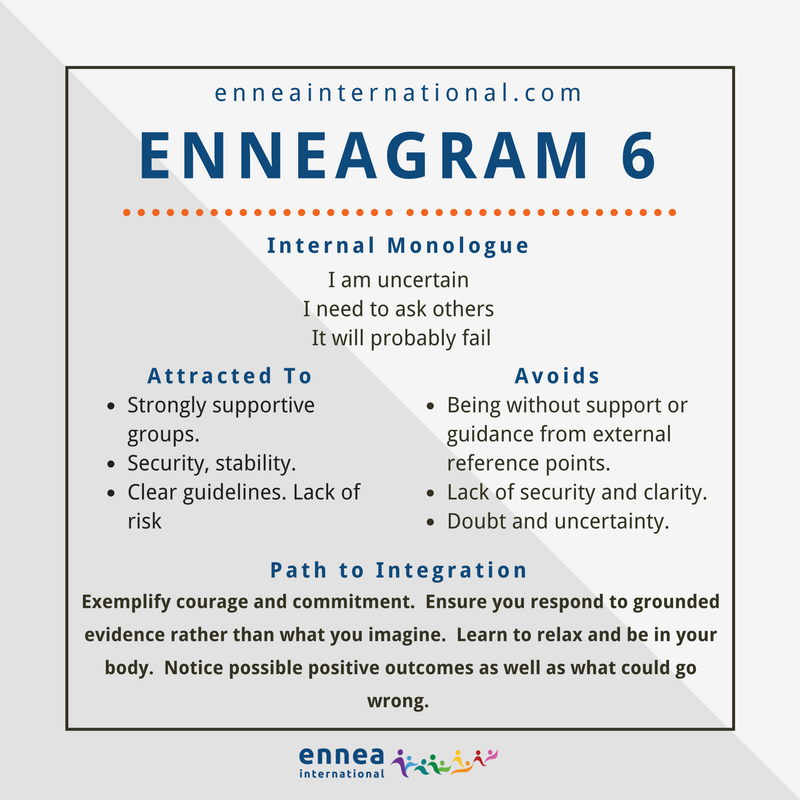
Many Sevens are innovators by nature. In any field of activity, they are able to see new opportunities, and often create brilliant business ideas. This shows their strength - the ability to easily come up with fresh ideas and new projects. Some Sevens describe the process as if they had a popcorn machine in their head. New ideas are the "popcorn balls" that this machine constantly produces in the head. Others say that new ideas are pictures that suddenly appear on their "inner screen". That's why Sevens often sit back, leaning back in their chair, looking up somewhere: this position helps them to relax and dream better than others.
Sevens grasp everything on the fly and quickly learn something new. They like to get to know the world around them and people, if possible, they often travel. Their knowledge is very versatile, but often quite superficial. Sevens do not like to delve into the topic, as they get bored, and they switch to some other subject of study.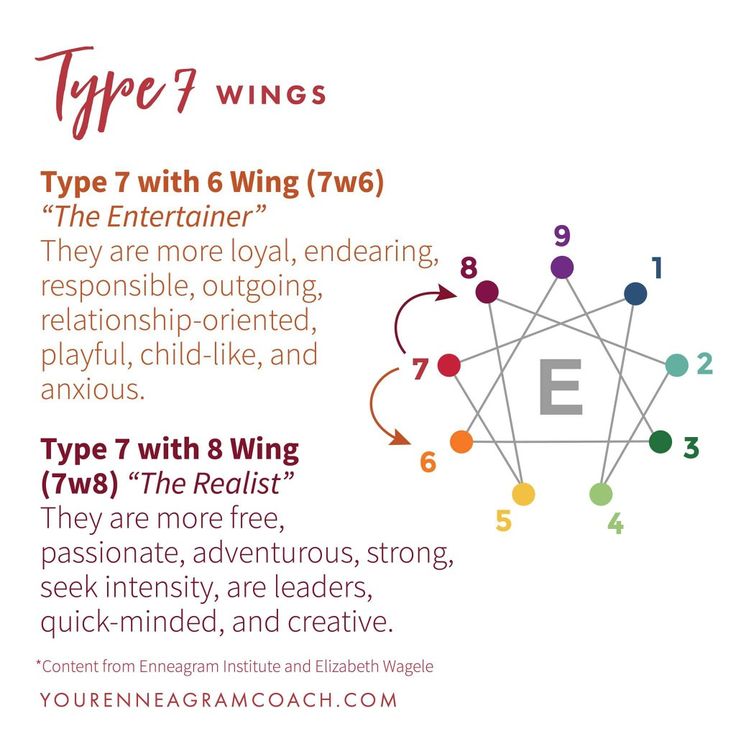
Many representatives of the Seventh type are bright and non-standard thinkers. They are able to see new possibilities in familiar things. They can find similarities between very distant spheres or areas of knowledge, combine different ideas with each other, find new ways of presenting already known material. Moreover, their thoughts fly one after another so rapidly that others sometimes simply do not keep up with the course of their reasoning.
These people are sometimes called "seers". But, unlike other representatives of the mental center, they do not simply try to foresee the future, they themselves create it in their imagination, and sometimes in reality.
Sevens are well aware of their needs and do not hesitate to ask others for their satisfaction. They are able, for example, to charm and persuade you to give him a thing that he liked in your house. They expect the same approach from you: if you need something, just say it. They are unlikely to guess your desires.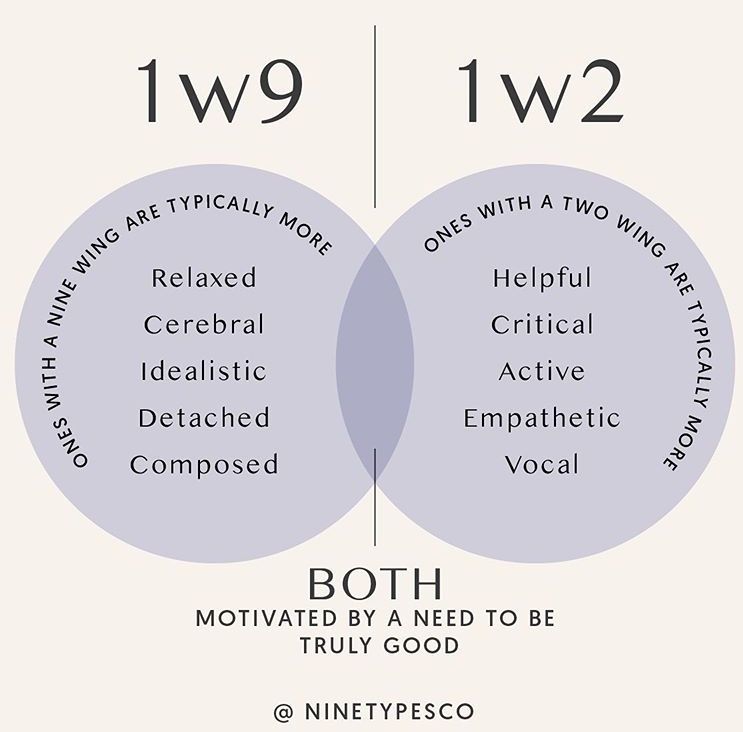 At the same time, the Sevens themselves are quite generous, and in response to your kindness they are always ready to repay the same. In a sense, these are grown-up children. It is impossible to be offended or angry with them for a long time. In addition, the representatives of the Seventh type themselves rarely show such negative emotions, on the contrary, they always glow with happiness and smile radiantly at you.
At the same time, the Sevens themselves are quite generous, and in response to your kindness they are always ready to repay the same. In a sense, these are grown-up children. It is impossible to be offended or angry with them for a long time. In addition, the representatives of the Seventh type themselves rarely show such negative emotions, on the contrary, they always glow with happiness and smile radiantly at you.
Representatives of the Seventh type can hardly endure severe negative experiences: fear, pain, sadness, suffering. As a rule, they try not to notice them at all in their lives. They seem to have a special filter installed that allows only positive moments to pass through. Sevens try not to plunge into negativity: they will try to cheer up or cheer up their sad friend, avoid visiting relatives in the hospital, sometimes even refuse to watch horror films. Another way they use to deal with negativity is called reframing, that is, the ability to see something positive in any situation.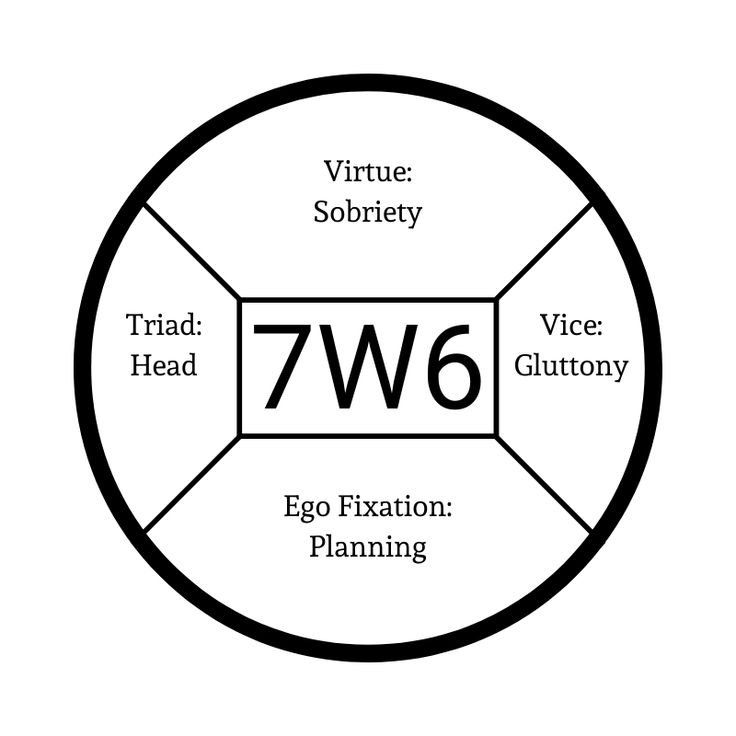 As they say, they always know how to make lemonade out of lemons. In any problem, the Seven is able to notice new opportunities, valuable life experience, or simply say: “Yes, this is not such a terrible problem, if you think about it!” Even about the saddest episodes from their lives, Sevens talk quite joyfully and cheerfully. And any of their sadness has a maximum light gray tint.
As they say, they always know how to make lemonade out of lemons. In any problem, the Seven is able to notice new opportunities, valuable life experience, or simply say: “Yes, this is not such a terrible problem, if you think about it!” Even about the saddest episodes from their lives, Sevens talk quite joyfully and cheerfully. And any of their sadness has a maximum light gray tint.
Motivation
It is important to remember that Sevens refers to the center of the head, the leading emotion of which is fear. And more than anything, people of the Seventh type are afraid of what lies inside them: loneliness, emptiness, boredom, painful experiences. It is from here that their unconscious motivation arises, which in the Enneagram is called Gluttony . This word means the desire of Sevens to constantly fill themselves with some impressions, events, communication, shopping, delicious food, just to fill their inner emptiness, avoid painful experiences and not feel lonely.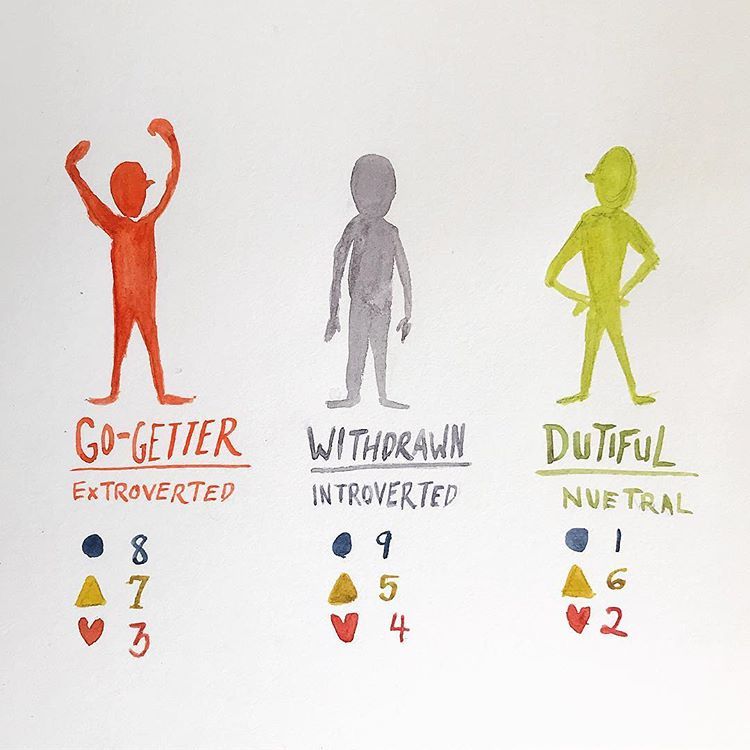 As if they are constantly missing something, and because of this, the Sevens feel some kind of inner hunger that they cannot satisfy in any way.
As if they are constantly missing something, and because of this, the Sevens feel some kind of inner hunger that they cannot satisfy in any way.
Some Sevens remember how, as a child, they made the decision that they needed to entertain themselves. For some reason, the mother figure could not provide them with the necessary attention and care. As a result, little Sevens quickly learn to get distracted from unpleasant experiences and fully immerse themselves in games with their toys or peers. Having matured, they continue to have fun: they love to buy new things, they always know how to find the best deals, discounts, sales. These are true gourmets in food, connoisseurs of luxury and modern technical innovations. However, for them, it is rather not the status of things that is important, but their quantity and variety. Thus, we can say that Sevens are quite practical and materialistic people.
Thinking of Sevens is fixed on Planning . Sevens are masters at coming up with new ideas or business plans.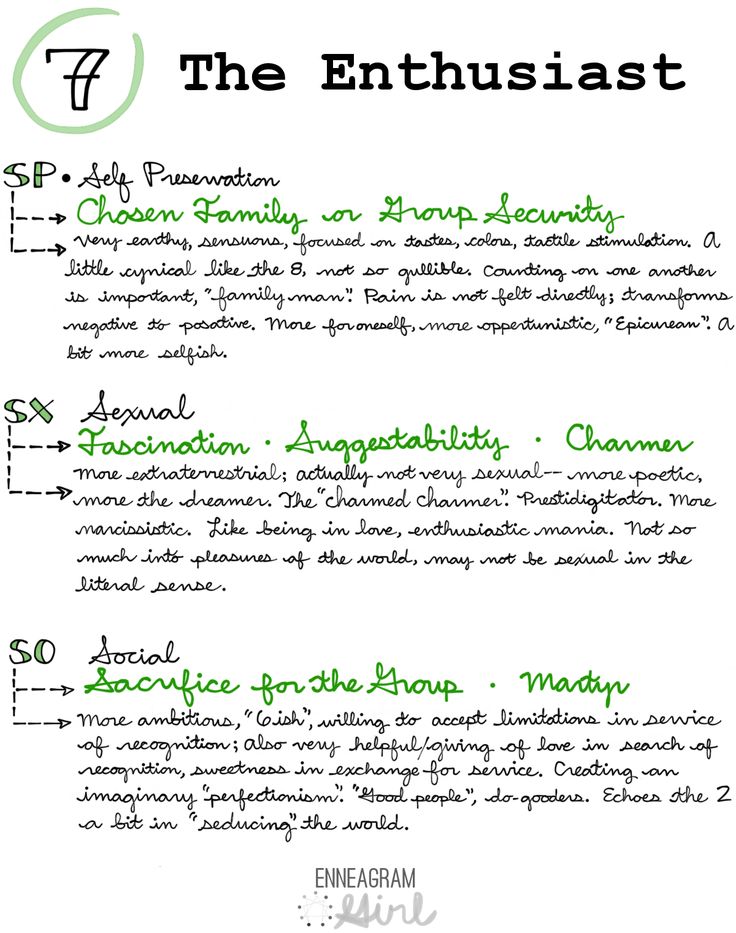 And they really enjoy starting something new, whether it's a work assignment, a community project, or their own business. But gradually this task loses its novelty and attractiveness, the Seven gets bored, many new opportunities appear that beckon to themselves. That's why most of the seven projects can rather be called projects: they end as soon as they start. Moreover, since it is still impossible to fulfill all of their projects and desires in one lifetime, Sevens have learned to “experience” most of them in their imagination. They scroll through all these exciting episodes on their “internal screen”: how they launch a new project, communicate with clients, sign contracts and spend money that has not yet been earned ... Having presented such a vivid picture in their head, the Seven are unlikely to want to embody all this in reality. Such people do not want to deal with real difficulties and routine duties that are inevitable in any business.
And they really enjoy starting something new, whether it's a work assignment, a community project, or their own business. But gradually this task loses its novelty and attractiveness, the Seven gets bored, many new opportunities appear that beckon to themselves. That's why most of the seven projects can rather be called projects: they end as soon as they start. Moreover, since it is still impossible to fulfill all of their projects and desires in one lifetime, Sevens have learned to “experience” most of them in their imagination. They scroll through all these exciting episodes on their “internal screen”: how they launch a new project, communicate with clients, sign contracts and spend money that has not yet been earned ... Having presented such a vivid picture in their head, the Seven are unlikely to want to embody all this in reality. Such people do not want to deal with real difficulties and routine duties that are inevitable in any business.
For this reason, it is sometimes difficult for Sevens to stay at one job for a long time and perform the same routine duties day after day.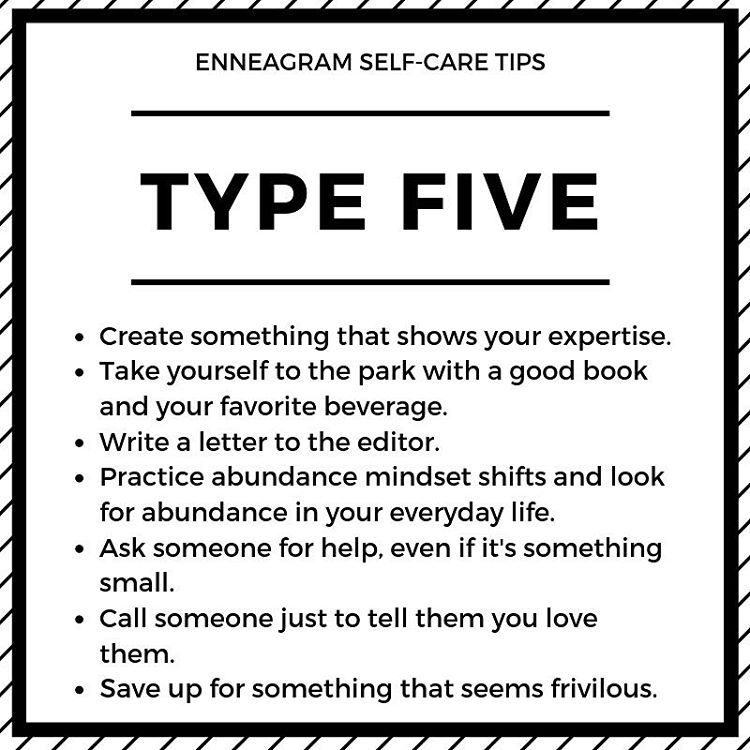 In general, they are afraid of everything that is somehow connected with serious obligations, frameworks, clear deadlines, routine and monotony. Many Sevens have several different plans for the same evening, according to the principle: "If it's boring at a party, I'll go to the movies or take a walk in the park with my friends." Sevens become real masters in planning: they often make many plans for a variety of reasons, rewrite them, supplement them, correct them. These plans give them a sense of fullness of life, create the impression of many different options for the development of the future.
In general, they are afraid of everything that is somehow connected with serious obligations, frameworks, clear deadlines, routine and monotony. Many Sevens have several different plans for the same evening, according to the principle: "If it's boring at a party, I'll go to the movies or take a walk in the park with my friends." Sevens become real masters in planning: they often make many plans for a variety of reasons, rewrite them, supplement them, correct them. These plans give them a sense of fullness of life, create the impression of many different options for the development of the future.
Transition under stress
Since Sevens always have a lot of plans, it is rather difficult for them to keep up with everything. Due to such a rich and varied life, exhaustion occurs over time. And then this cheerful person suddenly notices that he is always running somewhere, but at the same time his plans remain unfulfilled, and his successes are far from being as big as he would like.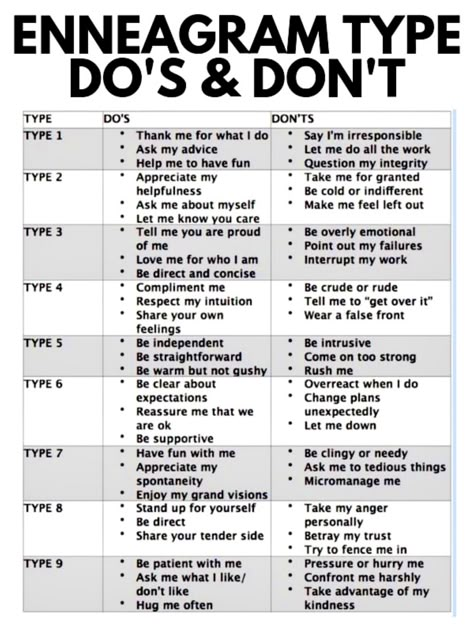 Then the inner critic is activated, which begins to “nag”: “Enough to have fun, it's time to get down to business. We need to do something worthwhile and finally bring this project to completion!” Any kind of strict commitment can also cause a pressure situation, such as tight deadlines for a work assignment or the need to make strong promises to a person or group.
Then the inner critic is activated, which begins to “nag”: “Enough to have fun, it's time to get down to business. We need to do something worthwhile and finally bring this project to completion!” Any kind of strict commitment can also cause a pressure situation, such as tight deadlines for a work assignment or the need to make strong promises to a person or group.
This is the state of the One, in which the Sevens fall into stress. They begin to pay more attention to the details and the quality of the task, are able to prioritize and bring some order to their chaotic life. At the same time, they begin to notice shortcomings in the people around them and in themselves, and because of this, they sometimes experience strong irritation and anger.
Transition in comfort
When the Seven turns out the way they want, life is full of joy, and there are no problems, a state of temporary satisfaction sets in. In this state, the Seventh type ceases to be afraid of boredom and loneliness, can somewhat slow down the pace of his life and even retire for a while.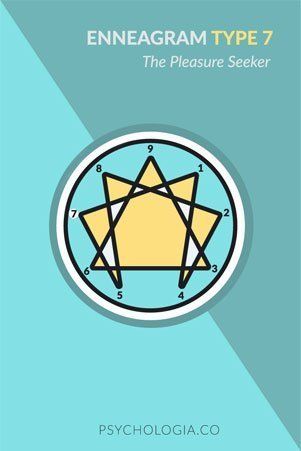 This is the transition to the Five. Being in comfort, the Seven can retire at home or study one subject in more depth. She does not need to call anyone, run to meetings or somehow entertain herself. This transition gives you the ability to focus and access your inner world. The desire to plan and have many different choices fades into the background, and Sevens become able to just be in the moment and enjoy their sensations in the “here and now”.
This is the transition to the Five. Being in comfort, the Seven can retire at home or study one subject in more depth. She does not need to call anyone, run to meetings or somehow entertain herself. This transition gives you the ability to focus and access your inner world. The desire to plan and have many different choices fades into the background, and Sevens become able to just be in the moment and enjoy their sensations in the “here and now”.
Enneatype 7 - Enthusiast - adventurer - epicurean
The need to avoid pain
The 7's desire to be happy turns into a manic escape from life.
Busy, opportunity-seeking type: Spontaneous, versatile, positive and absent-minded.
Basic fear: being deprived of something and being in pain
Basic desire: to be satisfied and satisfied - with completely satisfied needs
Type 7 with 6 wings: "tamada"
Type 7 with 8 wings: "realist"
Motivation: Sevens are motivated by the need to be happy and plan pleasurable activities to contribute to the world and avoid suffering and pain.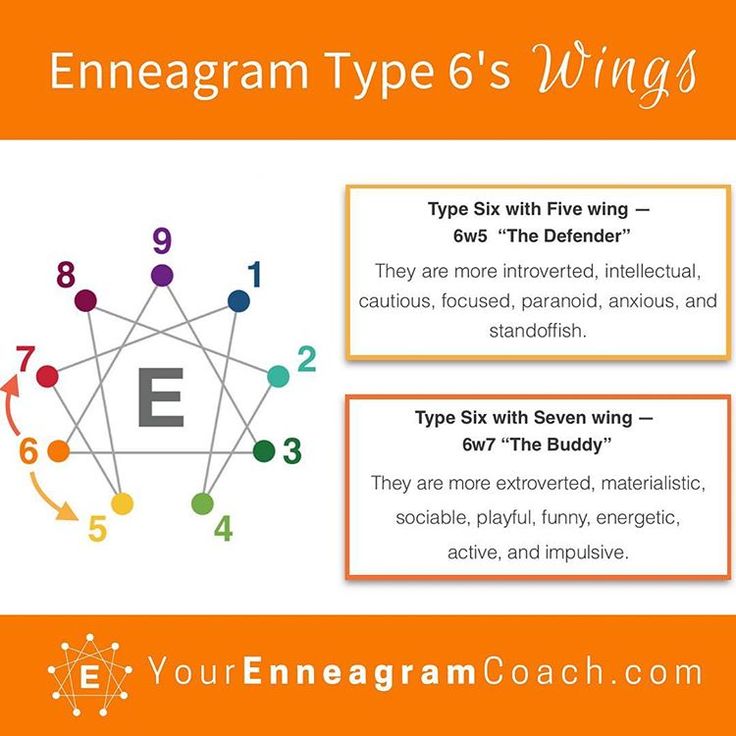
| The best qualities of sevens | Worst Qualities of Sevens |
|---|---|
| Fun loving Spontaneous Great Imagination Productive Rave Fast Confident Charming Curious | Narcissists Impulsive Unfocused Rebellious Unruly Owned Manic Self-destructive Restless |
Short description:
- Sevens are people who radiate joy and optimism. They may experience childish surprise and life is a gift to them.
- In their spontaneity, they create the impression that there is a lot of everything beautiful and good, that there is nothing unnecessary.
- Sevens are relaxed, full of good humor, creative, cheerful, playful, with a disarming charm, until one day they notice that all this also serves as a defense against anxiety and pain.
- In the course of their development, many sevens have experienced painful experiences.
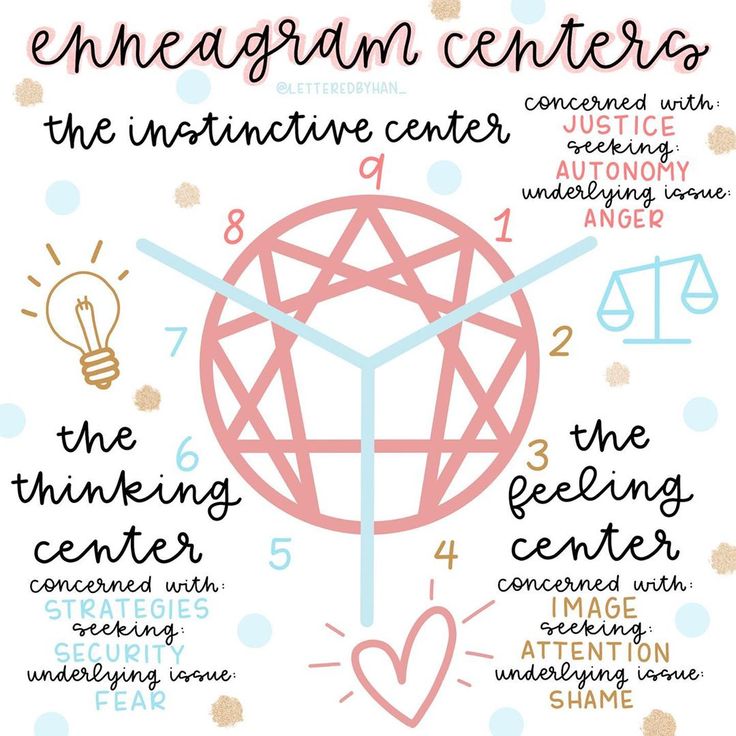 In order to avoid the recurrence of this pain in the future, they have developed a dual strategy: first, they suppress or erase negative and painful experiences. Many sevens "color" their life stories in positive colors. Secondly, they plan their lives in such a way that every day is filled with maximum pleasure and minimum pain.
In order to avoid the recurrence of this pain in the future, they have developed a dual strategy: first, they suppress or erase negative and painful experiences. Many sevens "color" their life stories in positive colors. Secondly, they plan their lives in such a way that every day is filled with maximum pleasure and minimum pain. - There are sevens with a constant smile on their faces. These are sevens like Jim Carrey (Mask) - everything is always fine with them.
- Sevens are curious. It is as if they never get enough of what they have or already know. They need change, stimulation and new experiences.
- Sevens are not specialists (of course there are exceptions). They always have a few irons burning because they always want to have escape routes and avoid deep attachment to anything or anyone.
- They rarely work at one job for a long time. They do not mind doing several interesting jobs at the same time.
Main contradictions:
- The temptation of sevens is idealism.
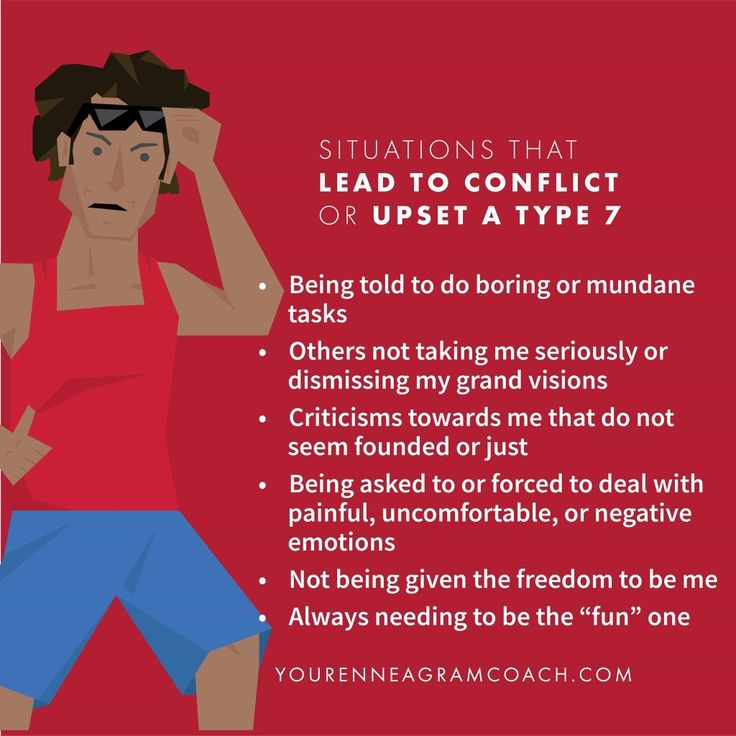 It has several aspects. Sevens must be sure that they are working for a good cause that brings them and other people joy.
It has several aspects. Sevens must be sure that they are working for a good cause that brings them and other people joy. - One of the most common defense mechanisms is rationalization.
- The death of a family member can become more bearable if you tell yourself that it was a "blessing" that the person has achieved a lot.
- Under certain circumstances, sevens can live for years without contact with the unpleasant side of life, and they do not like people who "rub salt in the wound" as whiners or "complete pessimists."
- Sevens avoid pain. Their method is surprisingly simple: "I want it to be fun, not sad. I want to enjoy life."
- Sevens have difficulty with emotional problems - their own and other people's.
- Sevens are unhappy when others are unhappy. There should be a favorable atmosphere around them.
- Sevens can exaggerate everything; more food, more drink, more work, more projects to start, more recognition to seek, more beautiful places to live.
